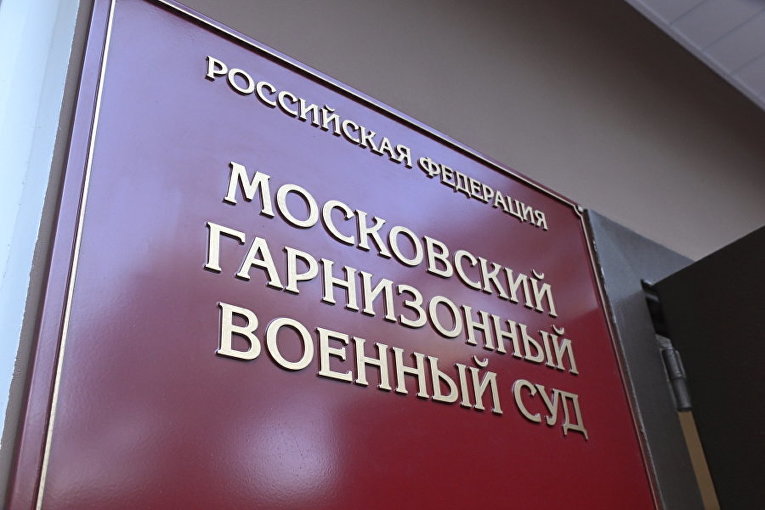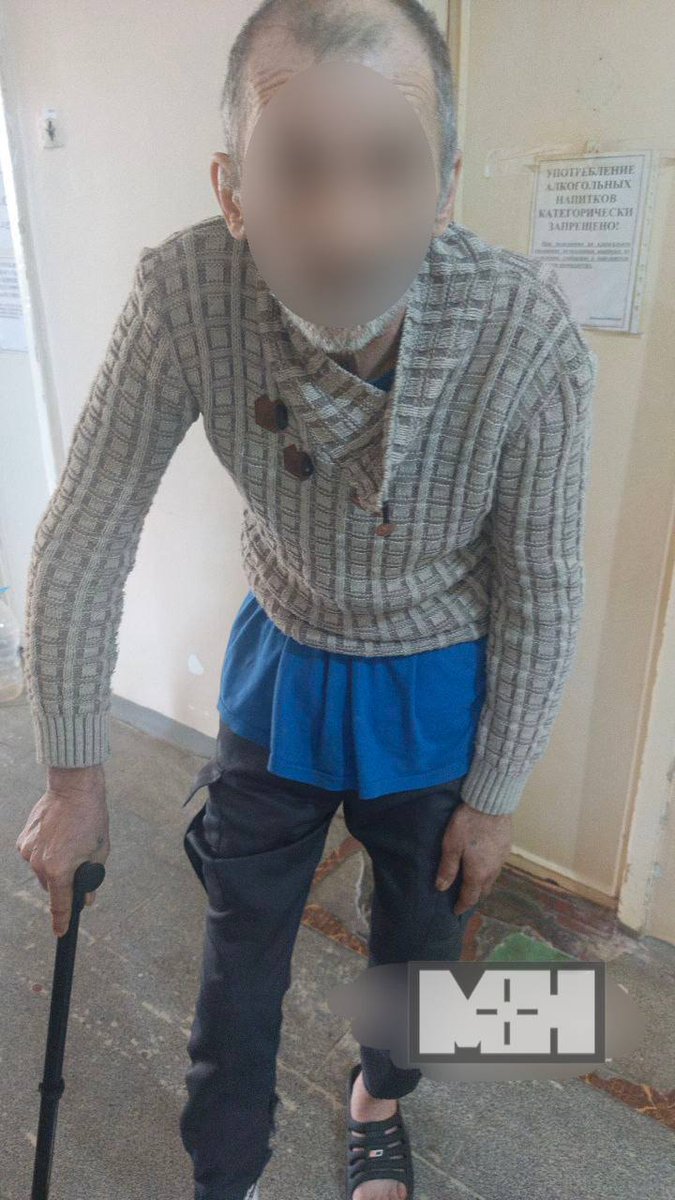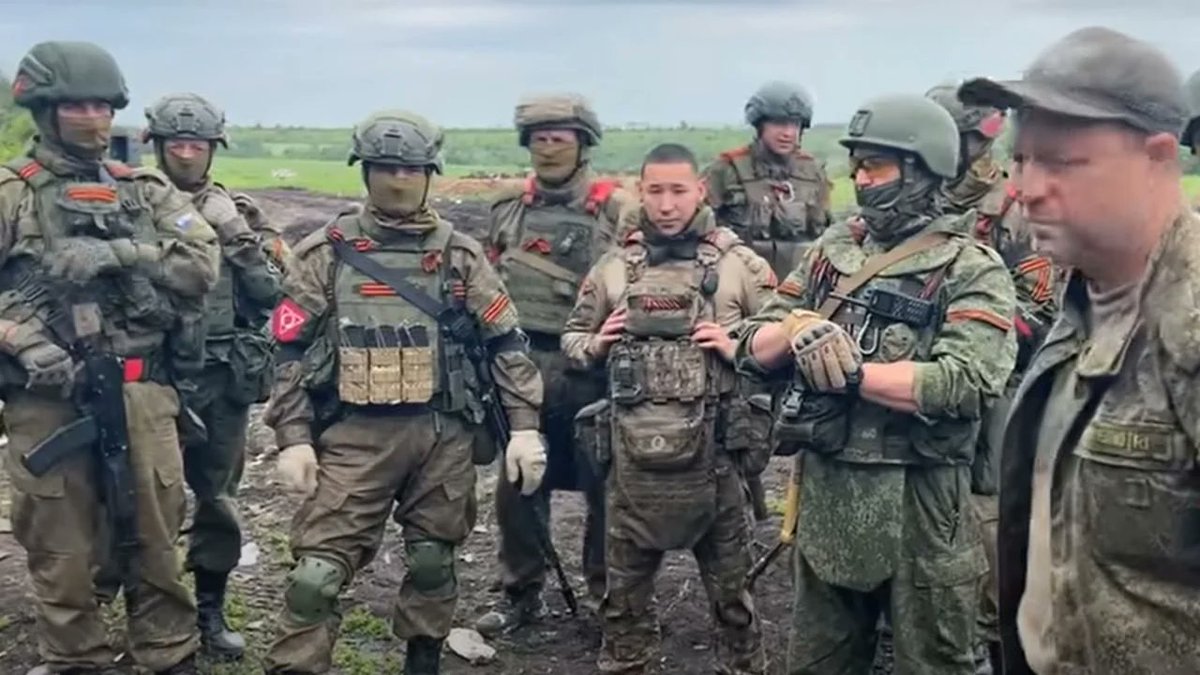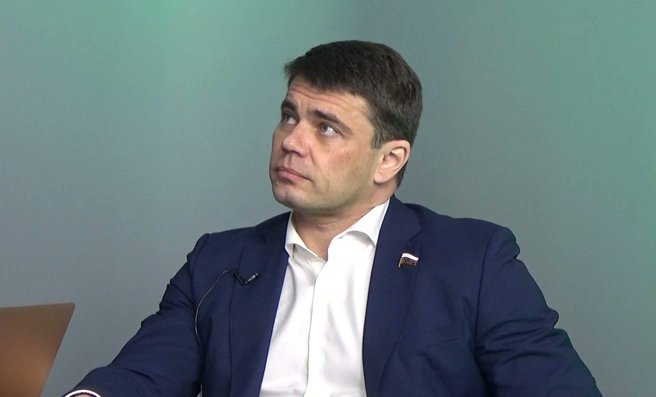1/ A recent Ukrainian attack in the Kherson region village of Yuvileine killed 4 police staff and injured another 17. The details of the casualties highlight both collaborationist activities and how officials from Russia have been recruited to manage the occupied regions. ⬇️ 
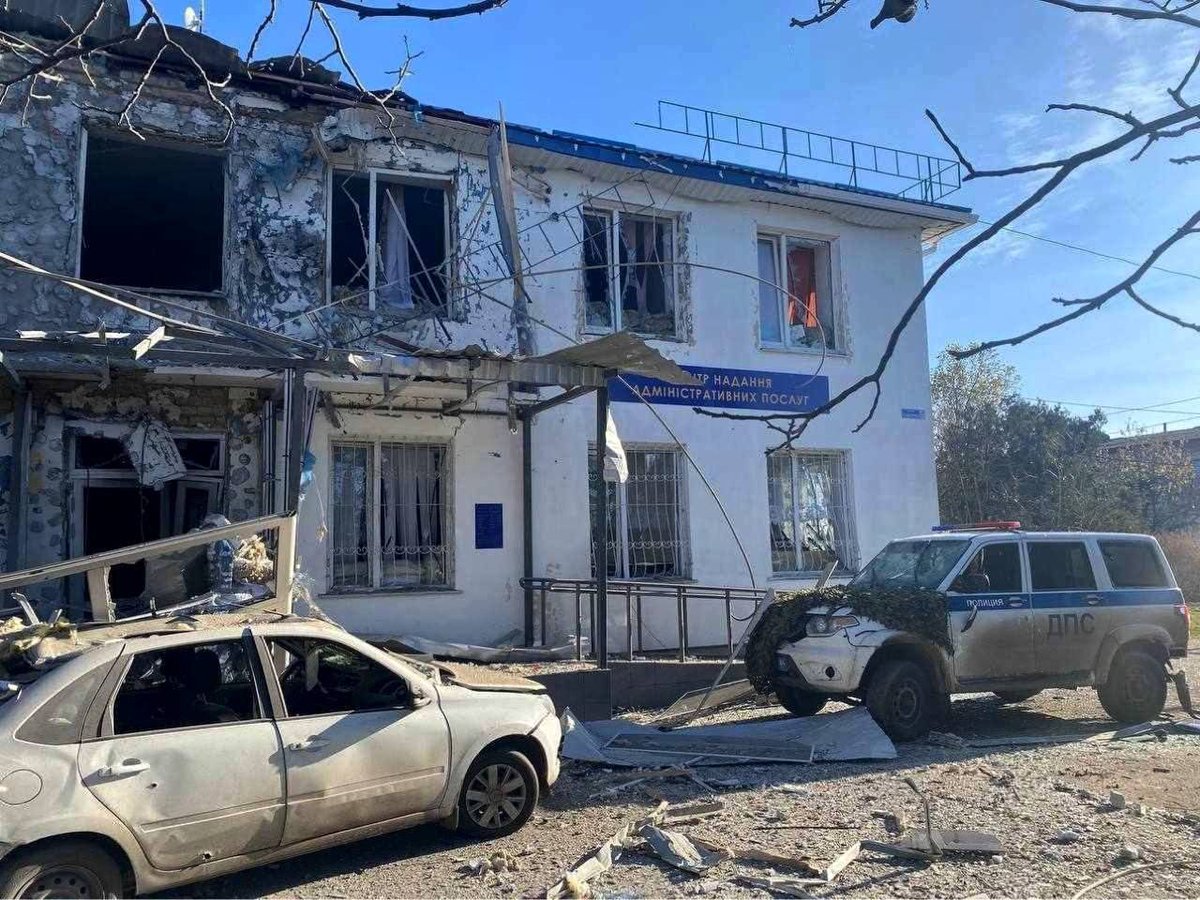
2/ The attack, which was likely carried out using HIMARS, struck a police building on the left bank of the Dnipro that was reportedly being used for a high-level meeting. It housed the so-called "Novokakhovsky Department of Internal Affairs of the Russian Federation". 
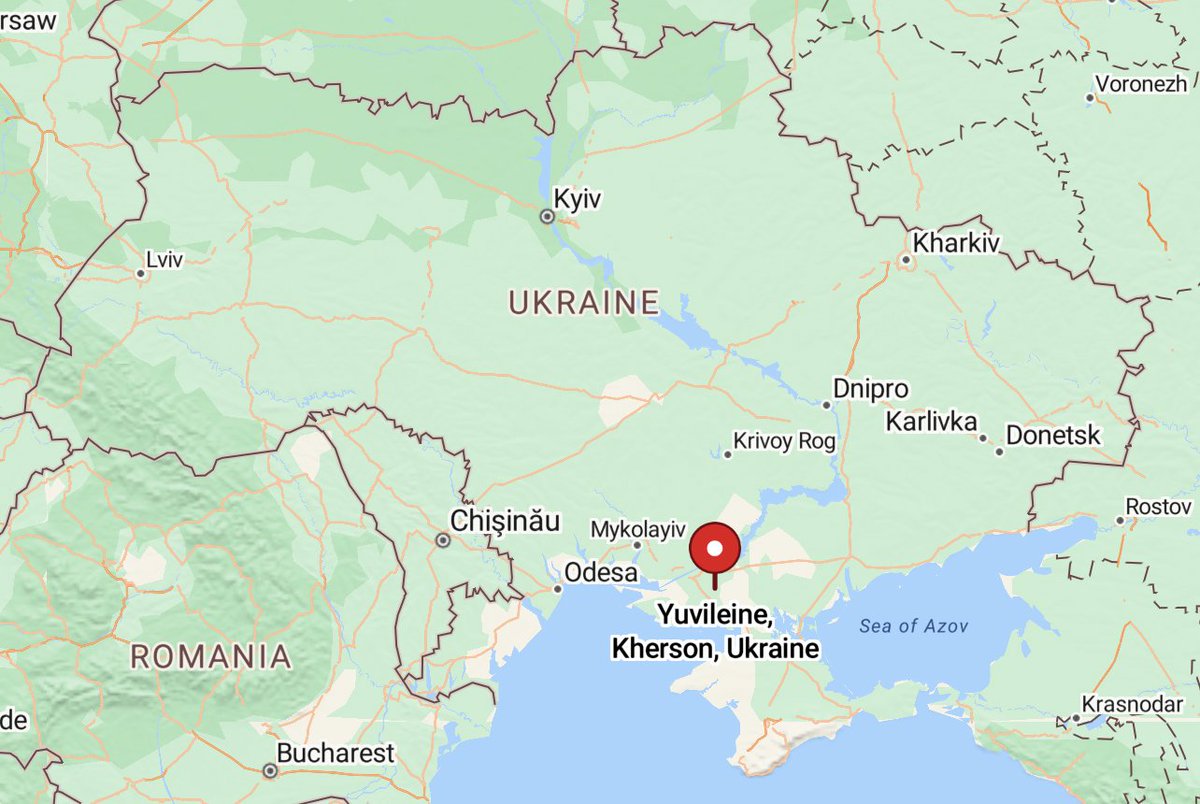
3/ The ASTRA Telegram channel has named several of the dead and wounded. It reports that most were police officials from Russia, who were "recruited to work in the occupied territories of Ukraine with promises of double salaries and other privileges."
4/ The four people killed were:
🔺 46-year-old senior police lieutenant Mergen Nimgirov (pictured), who came from the Moscow region to work in the Kherson region;
🔺 33-year-old police major Artur Dzhunusov, deputy chief of the department;
🔺 46-year-old senior police lieutenant Mergen Nimgirov (pictured), who came from the Moscow region to work in the Kherson region;
🔺 33-year-old police major Artur Dzhunusov, deputy chief of the department;

5/🔺 39-year-old police major Vladimir Novikov, who held the position of chief of logistics;
🔺 45-year-old police captain Sergei Novikov, who held the position of "inspector for juvenile affairs."
🔺 45-year-old police captain Sergei Novikov, who held the position of "inspector for juvenile affairs."
6/ The Russian wounded included:
🔺 36-year-old lieutenant of justice Elena Golodiaeva, who worked as a senior investigator and came to the Kherson region from Astrakhan;
🔺 36-year-old lieutenant of justice Elena Golodiaeva, who worked as a senior investigator and came to the Kherson region from Astrakhan;

7/ 🔺 36-year-old police captain Yuri Panchenko (left) who also worked as a senior investigator after coming from Stavropol in Crimea;
🔺 39-year-old Lieutenant Colonel of Justice Amida Midelashvili (right), head of the investigation department, who also came from Astrakhan;


🔺 39-year-old Lieutenant Colonel of Justice Amida Midelashvili (right), head of the investigation department, who also came from Astrakhan;


8/ 🔺 38-year-old police lieutenant colonel Dmitry Baranov, chief of the traffic police department;
🔺 37-year-old police captain Sergei Lysenkov.
🔺 37-year-old police captain Sergei Lysenkov.
9/ Several Ukrainian collaborationists working for the Russians were also injured in the attack. They included:
🔺 46-year-old police lieutenant Zhanna Khabirova, deputy head of department, who graduated from the Odesa Law Academy.
🔺 46-year-old police lieutenant Zhanna Khabirova, deputy head of department, who graduated from the Odesa Law Academy.

10/ 🔺 29-year-old junior police lieutenant, Nikolai Trubchanov, who graduated from the Kharkiv National University of Internal Affairs.
The police are a key component of the Russian occupation, working to support the Russian military and suppress any partisan activity.
The police are a key component of the Russian occupation, working to support the Russian military and suppress any partisan activity.

11/ The attack was likely intended to signal to the Russian police officials and their Ukrainian collaborationist co-workers that they are regarded as legitimate targets, and to weaken Russian control by disrupting the policing of frontline areas. /end
• • •
Missing some Tweet in this thread? You can try to
force a refresh


